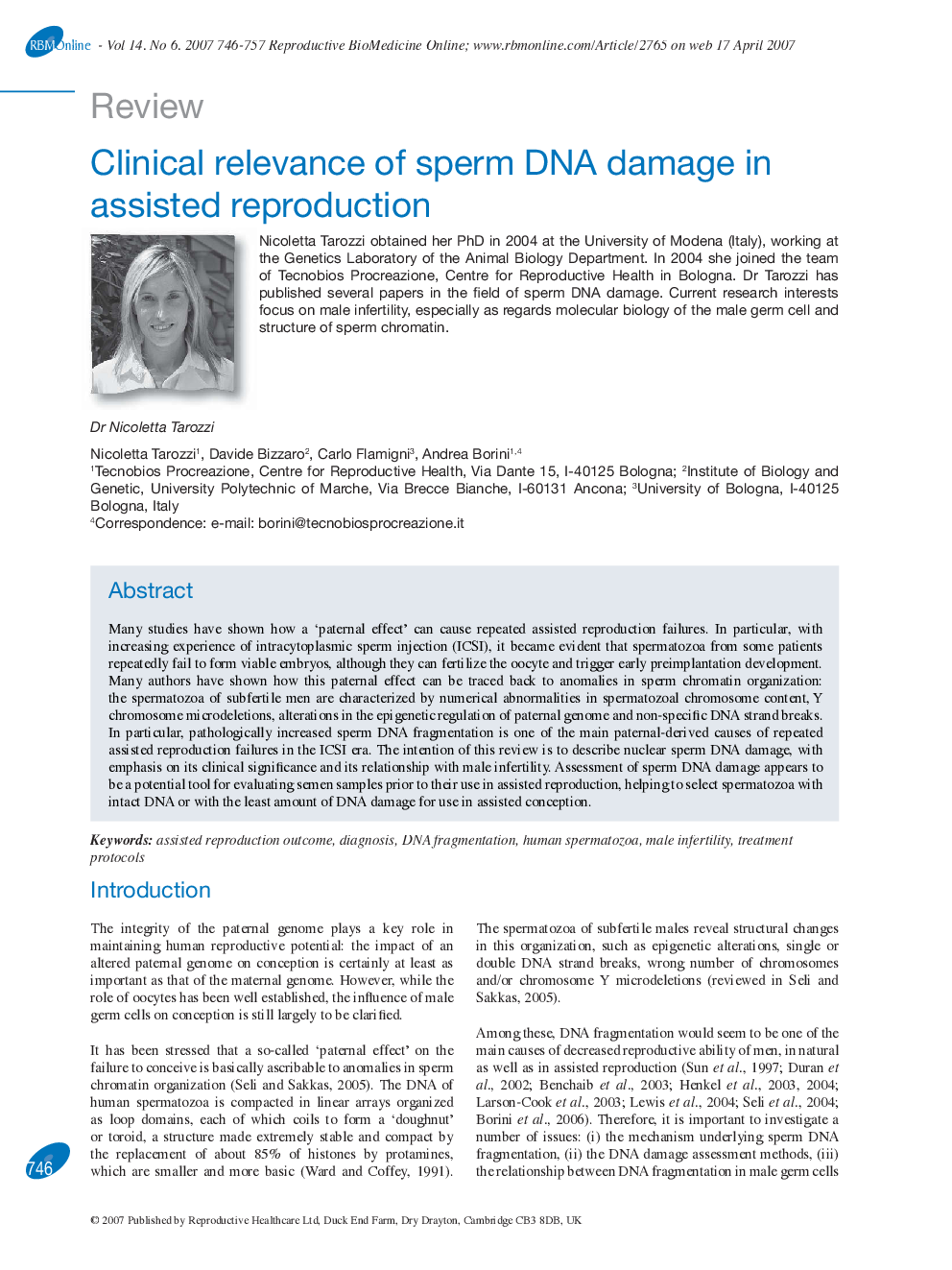| کد مقاله | کد نشریه | سال انتشار | مقاله انگلیسی | نسخه تمام متن |
|---|---|---|---|---|
| 3973463 | 1256855 | 2007 | 12 صفحه PDF | دانلود رایگان |

Many studies have shown how a ‘paternal effect’ can cause repeated assisted reproduction failures. In particular, with increasing experience of intracytoplasmic sperm injection (ICSI), it became evident that spermatozoa from some patients repeatedly fail to form viable embryos, although they can fertilize the oocyte and trigger early preimplantation development. Many authors have shown how this paternal effect can be traced back to anomalies in sperm chromatin organization: the spermatozoa of subfertile men are characterized by numerical abnormalities in spermatozoal chromosome content, Y chromosome microdeletions, alterations in the epigenetic regulation of paternal genome and non-specific DNA strand breaks. In particular, pathologically increased sperm DNA fragmentation is one of the main paternal-derived causes of repeated assisted reproduction failures in the ICSI era. The intention of this review is to describe nuclear sperm DNA damage, with emphasis on its clinical significance and its relationship with male infertility. Assessment of sperm DNA damage appears to be a potential tool for evaluating semen samples prior to their use in assisted reproduction, helping to select spermatozoa with intact DNA or with the least amount of DNA damage for use in assisted conception.
Journal: Reproductive BioMedicine Online - Volume 14, Issue 6, 2007, Pages 746-757